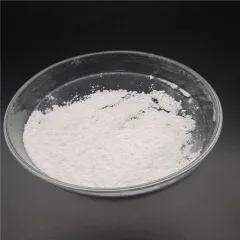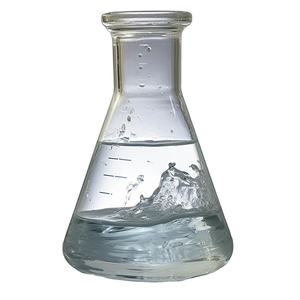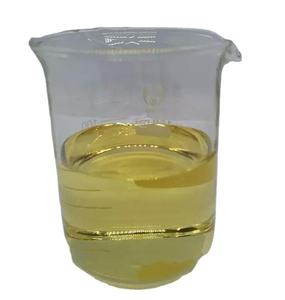In-depth Evaluation of Sodium Silicate: From Fundamental Study to Wide Applications
As innovation advances and commercial needs enhance, new products have come to be a prime focus in modern-day materials scientific research across various areas. Sodium silicate, generally known as water glass, is a historically considerable and extensively used not natural substance that plays an indispensable role in various industries. This write-up explores the fundamental qualities, prep work methods, current applications, and future patterns of sodium silicate.
Salt silicate is a substance made up of silica (SiO ₂) and salt hydroxide (NaOH), with a chemical formula usually represented as Na ₂ O · nSiO ₂, where n denotes the silica-to-alkali proportion, figuring out the certain kind and homes of the salt silicate. It shows outstanding adhesive residential properties, thermal security, and chemical resistance, maintaining architectural integrity also at heats. Salt silicate can exist in both strong and liquid kinds; its solution is viscous, efficient in developing gels, and it sets upon taking in carbon dioxide from the air. These characteristics make salt silicate widely suitable in building, casting, cleaning agents, papermaking, fabrics, ceramics, and a lot more, such as for waterproofing agents, fire-retardant layers, and adhesives.
(Sodium Silicate Powder)
The prep work of sodium silicate mostly involves 2 approaches: completely dry process and damp process. The completely dry process makes use of quartz sand and soda ash as main resources, reacting them in a high-temperature heating system to produce sodium silicate, ideal for massive production but with higher energy intake. The wet procedure manufactures salt silicate by straight responding silica and sodium hydroxide solutions, being less complex and lower in expense, ideal for small-batch research laboratory preparation. Recently, boosted wet processes like ultrasonic-assisted synthesis have been created, enhancing reaction effectiveness and product quality. Furthermore, some novel preparation modern technologies are under research and development, such as microwave home heating and sol-gel methods, which assure to additional maximize the prep work procedure, decrease prices, and boost product efficiency.
Leveraging its exceptional buildings, sodium silicate locates extensive applications in numerous industries. In building and construction products, salt silicate is utilized in cement, concrete, bricks, enhancing product fluidness, strength, and resilience while including waterproofing and fireproofing features. In spreading, it enhances molds and cores, preventing casting deformation. In cleaning agents and cleaning items, salt silicate is a key component in laundry powders and dishwashing fluids, softening water and spreading dirt fragments to enhance cleaning efficiency. In papermaking, it acts as a retention aid and strength enhancer, raising paper strength and surface level of smoothness. In textile dyeing, it is made use of in printing paste solutions to boost color strength and pattern clearness. In ceramic manufacturing, sodium silicate changes glaze formulas, decreasing shooting temperatures and improving glaze gloss and flatness. Furthermore, sodium silicate plays an important function in environmental protection, removing heavy metal ions and various other pollutants from wastewater and improving soil framework for plant growth.
(Sodium Silicate Powder)
In spite of considerable success, larger-scale application of salt silicate faces technological and design challenges. With progressively rigid ecological laws, lowering pollution discharges throughout production and usage is a pressing problem. Researchers are exploring greener and more reliable production procedures, such as utilizing sustainable energy-driven synthesis methods and developing biodegradable options. Incorporating numerous performances right into products will certainly be a future study emphasis, such as surface alteration or composite style to enhance salt silicate with added features like antibacterial, fire-retardant, and wear-resistant residential properties to meet diverse application requirements. Comprehensive safety assessments of salt silicate’s prospective wellness threats are crucial for making certain secure use. Currently, worldwide standards lead the secure administration and assessment of sodium silicate.
Looking in advance, sodium silicate will attain significant progression in smart applications, environment-friendly sustainable advancement, and interdisciplinary participation. Advanced technologies like IoT and big data analytics can deeply incorporate salt silicate into wise buildings and homes, providing more convenient and comfy living experiences. Establishing environmentally friendly preparation processes decreases power usage and waste exhausts, promoting low-carbon, round advancement. Strengthening interdisciplinary collaboration to deal with vital technological bottlenecks will certainly promote cutting-edge applications of sodium silicate in arising areas. As an example, integrating nanotechnology with biomedicine can develop targeted medication delivery systems, even more enhancing clinical results. In recap, facing transforming market needs and technical obstacles, just continual innovation can equal this age full of possibilities. Our team believe that in the near future, we will certainly witness remarkable technological accomplishments in this field, adding to creating a far better living environment for mankind.
TRUNNANO is a supplier of boron nitride with over 12 years of experience in nano-building energy conservation and nanotechnology development. It accepts payment via Credit Card, T/T, West Union and Paypal. Trunnano will ship the goods to customers overseas through FedEx, DHL, by air, or by sea. If you want to know more about Sodium Silicate, please feel free to contact us and send an inquiry(sales5@nanotrun.com).
All articles and pictures are from the Internet. If there are any copyright issues, please contact us in time to delete.
Inquiry us







